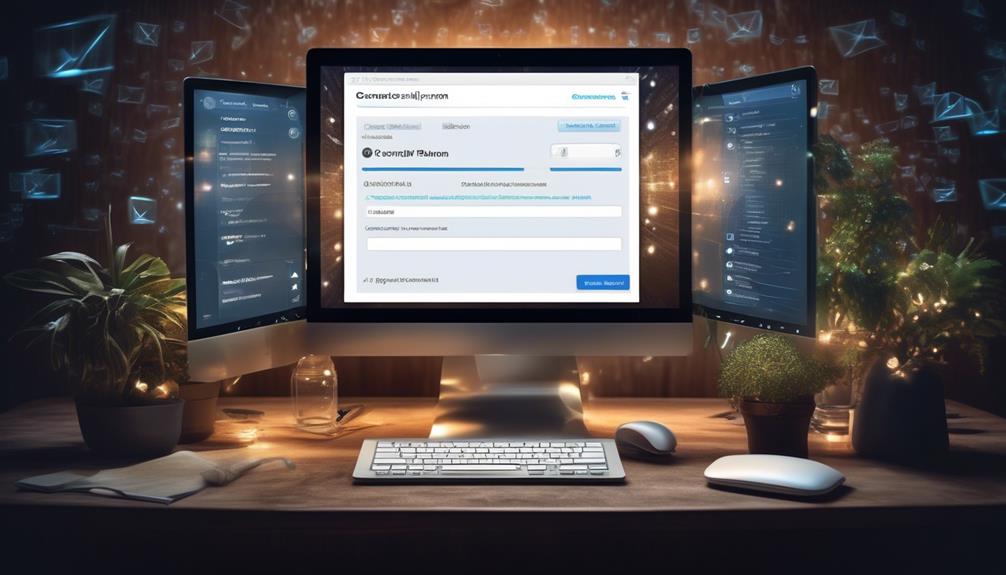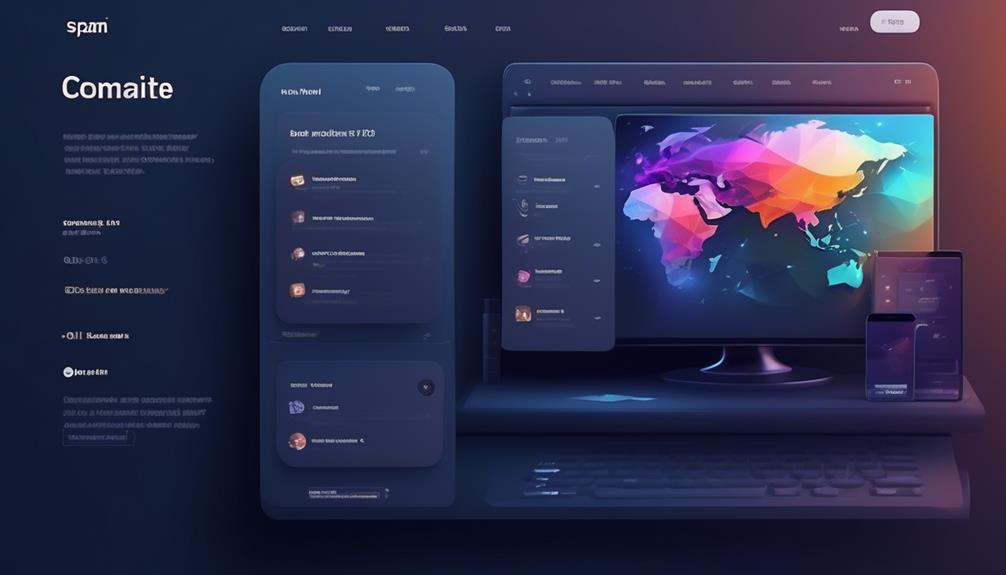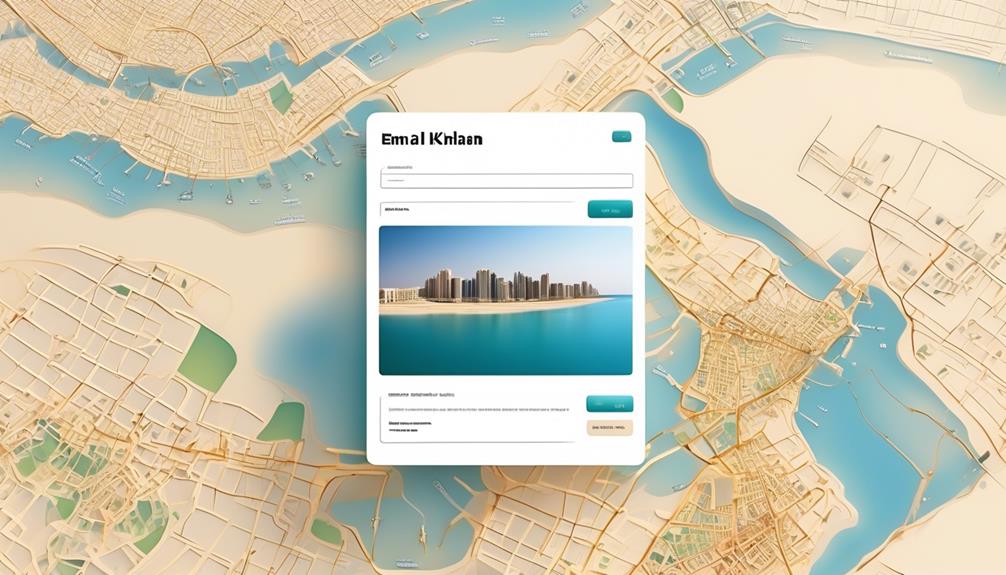When it comes to sending bulk emails, we often have to strike a careful balance to ensure our messages reach the right recipients without getting caught in spam filters or promotional folders.
It’s a challenge that many of us face, but fear not, for there are strategies and tools that can help us navigate this daunting task.
From leveraging the power of Gmail and its mail merge extensions to exploring dedicated email automation tools, there are various options to consider.
But how does one decide which approach is the best fit for their specific needs and goals? Well, that’s what we’re here to unravel.
Key Takeaways
- Carefully assess the sending limits of an email service provider to ensure it aligns with your bulk email needs.
- Consider automation features like mail merge and integration with Google Workspace to streamline your email campaigns.
- Evaluate the design capabilities of the email service provider to create visually appealing emails that reflect your brand.
- Check the deliverability and tracking capabilities of the provider to ensure successful email campaigns.
Selecting the Right Email Service Provider
When choosing the right email service provider for mass emailing, it’s crucial to carefully assess their sending limits, automation features, design capabilities, deliverability, tracking, and scalability.
The sending limits determine the maximum number of emails you can send in a given time frame. It’s essential to ensure that the provider’s limits align with your needs for bulk emails.
Additionally, automation features such as mail merge and integration with Google Workspace can significantly streamline your email marketing efforts.
Design capabilities play a crucial role in creating visually appealing emails that reflect your brand.
Evaluating the deliverability and tracking capabilities is vital to ensure that your emails reach recipients’ inboxes and to monitor the success of your campaigns.
Lastly, considering the scalability of the email service provider is important, especially if you anticipate expanding your mailing list and reaching a larger audience.
Crafting an Effective Message
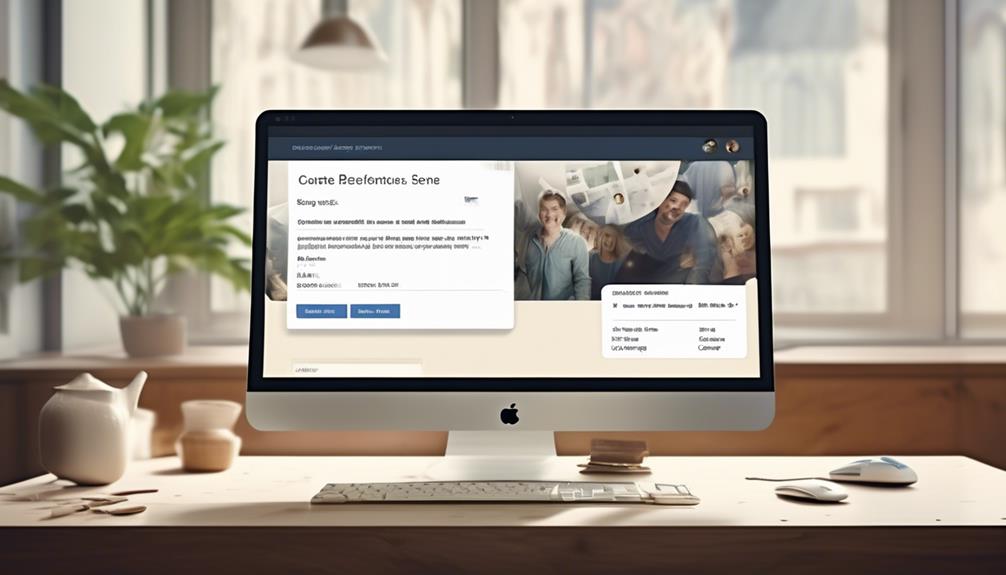
Crafting an effective message involves tailoring the content to resonate with the recipients and spur them to take action. Personalizing the email content using placeholders like {{First Name}} can make the message more engaging and relevant to the recipients. It’s essential to ensure that the message is clear, concise, and offers a solution to the recipients’ needs or challenges. Including a compelling call-to-action can encourage recipients to take the desired action, driving better email performance. Additionally, using persuasive language and visually appealing design can make the message more impactful and memorable, increasing engagement and conversions. Considering the tone, timing, and delivery method is crucial to ensure the message resonates with the target audience and drives the desired response. Here’s a table to summarize the key elements of crafting an effective message:
| Key Elements | Description |
|---|---|
| Personalization | Tailor the content using placeholders like {{First Name}} to make the message more engaging and relevant. |
| Clarity and Conciseness | Ensure the message is clear, concise, and offers a solution to the recipients’ needs or challenges. |
| Compelling Call-to-Action | Include a compelling call-to-action to encourage recipients to take the desired action. |
| Persuasive Language | Use persuasive language and visually appealing design to make the message more impactful and memorable. |
Managing Your Recipient List
After crafting an effective message to resonate with recipients and spur them to take action, the next crucial step is managing your recipient list to ensure targeted and impactful email campaigns.
To start, we recommend using a platform like Gmail to send mass emails. Create and maintain your recipient list by adding new contacts and merging duplicate entries. This ensures that your list remains up to date and organized for efficient sending.
When creating your recipient list, be sure to click on each contact’s profile to gather relevant information. This will allow you to segment your list based on demographics, behavior, or engagement, enabling you to send personalized and targeted emails. Additionally, utilizing placeholders and personalization tokens can further customize your emails based on recipient data, increasing engagement and interaction.
Regularly updating and cleaning your recipient list is essential to remove inactive or incorrect email addresses. This practice ensures that your emails reach relevant recipients and helps maintain a healthy and engaged audience.
Using an Email Automation Tool
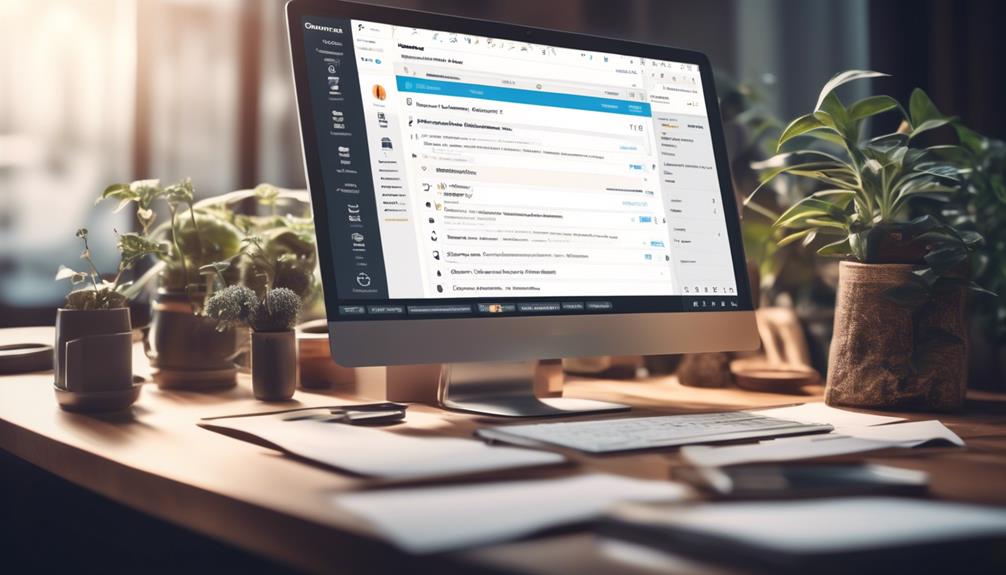
We rely on an Email Automation Tool to streamline our mass email campaigns and ensure efficient management of our recipient list.
By using a dedicated email marketing tool, we can send bulk emails while maintaining a personalized touch.
This email automation tool allows for mail merge, enabling us to send an email to a large number of recipients while customizing certain parts of the email, such as the name or specific details.
Additionally, the tool helps us handle the volume of emails per day, ensuring that our emails are sent out consistently and reliably.
With this dedicated email marketing software, we can create and schedule mass emails, saving time and effort.
Furthermore, the automation tool provides attractive and engaging email designs with responsive templates, enhancing the overall effectiveness of our email campaigns.
It also assists in managing contact lists and tracking interactions efficiently.
Therefore, investing in an email automation tool is essential for anyone looking to conduct successful and efficient mass email campaigns.
Understanding Gmail’s Sending Limits
Understanding Gmail’s sending limits is crucial for effectively managing mass email campaigns and ensuring successful delivery to recipients.
When sending bulk emails using Gmail, it’s essential to be aware of the daily sending limit. As of the latest update, Gmail allows a maximum of 500 emails to be sent per day for regular Gmail accounts and 2,000 emails for G Suite accounts.
To send mass emails in Gmail, consider using the BCC (Blind Carbon Copy) option to avoid reaching the recipient’s limit. Another effective approach is to use mail merge, a feature available through Google Sheets and Gmail, which enables personalized mass emails without hitting the sending limits.
It’s important to note that Gmail isn’t originally designed for sending mass emails. However, with the right strategies and tools, such as free email marketing add-ons, it can be used effectively for this purpose.
Frequently Asked Questions
What Is the Best Way to Send Mass Emails?
We find that the best way to send mass emails is by using a reputable email marketing platform. These platforms offer features like customizable templates, list segmentation, and analytics to track performance.
They also ensure that your emails comply with anti-spam regulations and provide tools for managing opt-outs.
Using a dedicated email marketing service can help streamline the process and improve the deliverability and effectiveness of your mass email campaigns.
How Do I Send Bulk Emails in Gmail?
We send bulk emails in Gmail by utilizing the ‘Mail Merge’ feature in Google Sheets and the ‘Yet Another Mail Merge’ add-on.
This allows us to personalize and send mass emails directly from our Gmail account.
How Do I Send Multiple Emails at Once?
We’ve all been there, needing to send multiple emails at once. It’s a time-consuming task. Did you know that the average person sends and receives 121 emails per day? That’s a lot of time spent in our inboxes.
To streamline the process, consider using an email service provider that offers bulk email sending capabilities. These services can help you efficiently send out mass emails without the hassle of doing it one by one.
How Can I Send Bulk Emails for Free?
We often use email marketing platforms for sending bulk emails for free. They allow us to create and send customized emails to a large audience.
It’s important to choose a reliable platform that offers features like contact management, templates, and analytics. Once the email list is uploaded, we can easily schedule and send bulk emails while ensuring they comply with anti-spam regulations.
Conclusion
In conclusion, sending email in bulk can be a powerful tool for business communication. By investing in the right email service provider or using automation tools, businesses can overcome Gmail’s sending limits and improve their efficiency.
Did you know that according to a study by Campaign Monitor, personalized emails can increase open rates by 26%? This statistic underscores the importance of crafting personalized messages when sending emails in bulk.
